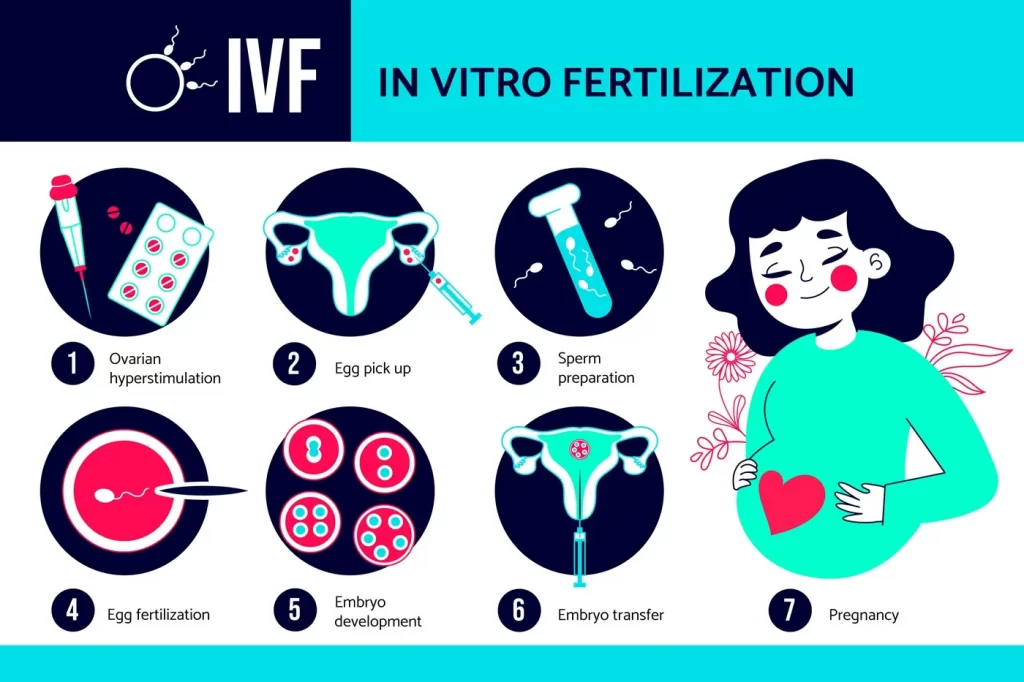
Regardless of the identified reasons behind a woman’s infertility, In Vitro Fertilization (IVF) is commonly the most effective method to assist when conceiving naturally proves difficult. IVF allows for the combination of egg and sperm in a controlled laboratory setting that significantly increases the chances of successful fertilization. The resultant embryos from the fertilization process are then scrutinized for their quality before they are implanted and allowed to grow.
An IVF cycle typically lasts 6 to 8 weeks, starting from the initial consultation to the embryo transfer. However, the preparation for women starts several weeks in advance and the responses to the stages of the process can vary from patient to patient.
In the initial consultation during the first week, a comprehensive medical history of both partners is collected. All questions and concerns are answered during this time. The specifics of the treatment plan and the diagnosis will be discussed, including instructions on how to self-administer IVF medications. Additionally, a financial consultation will occur at this stage.
Weeks two to four involve extensive blood testing as part of the preparation, providing a detailed insight into fertility levels. Customized IVF protocols are offered based on these results. Various pre-IVF tests include:
- Ultrasound imaging
- Testing for infectious diseases
- Assessment of the uterus
- Male fertility evaluation, including semen analysis
After the testing and diagnosis, the treating physician may prescribe birth control pills for a duration of 2 to 4 weeks to regulate menstrual cycles and prepare the ovaries for the upcoming medication.
Week 5 is dedicated to medications and monitoring. Once the birth control pill is stopped, the process called controlled ovarian hyperstimulation starts. Clinic visits will include an ultrasound to check the uterus and ovaries. If clear, fertility treatments, either oral or injectable, are initiated to stimulate the ovarian follicles to produce several eggs, rather than the typical single egg produced in a regular cycle. This stage involves the most time, with approximately 5 to 7 clinic visits necessary for monitoring egg and follicle development through ultrasound and blood tests.
In week 7, after 10 to 12 days of fertility medication, and once the follicles have attained the right size, a final egg maturation process is scheduled using ultrasound guidance. The eggs are retrieved 36 hours later in a minor procedure under sedation, and it’s advisable to take the day off work. A semen sample is collected from your partner on the day of egg retrieval.
In the laboratory, sperm and eggs are combined to create embryos. Several techniques, such as preimplantation genetic screening (PGS), genetic diagnosis (PGD), assisted hatching, and intracytoplasmic sperm injection (ICSI), are available to enhance the chances of a successful pregnancy.
Following fertilization, embryos are evaluated and prepared for transfer within 3 to 6 days. Daily monitoring helps the doctors decide which embryos are the most viable for transfer. Some opt for transfer after three days of fertilization, while others wait until five days after fertilization before implanting the embryos or blastocysts into the uterus, which requires a minor sedated procedure.
After the IVF procedure, a progesterone supplement is often prescribed to fortify the uterine lining and aid implantation. The first pregnancy test takes place roughly 12 – 15 days post-embryo transfer. If positive, a follow-up test occurs within a week. A positive result leads to an ultrasound scheduled 2 to 3 weeks later, after which ongoing care is transitioned to an Obstetrician-Gynecologist.
Possible side effects you may encounter during different stages of IVF cycles include:
- Bloating
- Cramps
- Tenderness in the breasts
- Mood changes
- Headaches
- Bruising at injection sites
- Allergic reactions to medications
- Risk of infection
- Bleeding
These side effects and any other concerns should be discussed with your doctor. IVF can be an emotionally demanding process for both the patient and their loved ones. Engaging with others who have faced infertility and undergone IVF can provide substantial support.